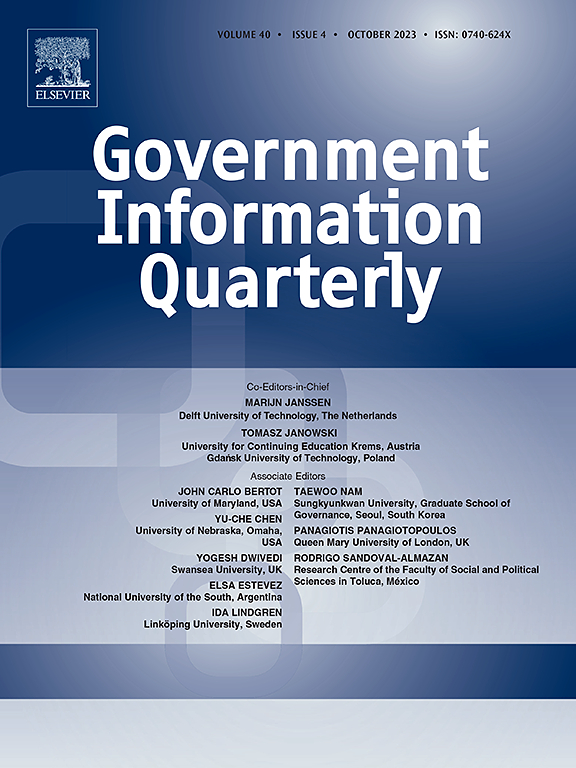信息自由与请求数据量:一项实验性研究
IF 10
1区 管理学
Q1 INFORMATION SCIENCE & LIBRARY SCIENCE
引用次数: 0
摘要
本研究探讨了地方政府对信息请求的回应,重点关注所请求的数据量和参考信息自由(FOI)立法。该研究依赖于在斯洛伐克各城市进行的2 × 2受试者间设计的现场实验。要求提供的信息在所要求的数据量(低与高)以及是否包含对国家信息自由法的参考(没有参考与明确参考)方面有所不同。研究表明,要求提供更多信息明显降低了市政当局的响应能力。然而,这种影响被纳入对信息自由法的参考所缓和。对于寻求少量数据的请求,明确引用信息自由法只能略微支持响应率。相反,在高需求请求的情况下,纳入信息自由法参考可大大提高市政当局的响应能力。这项研究对透明度的文献有贡献,因为它表明参考信息自由立法是克服地方政府不愿回应更苛刻的信息请求的有效工具。本文章由计算机程序翻译,如有差异,请以英文原文为准。
Freedom of information and the volume of requested data: An experimental study
This study explores local government responses to information requests by focusing on the volume of requested data and a reference to the freedom of information (FOI) legislation. The study relies on a field experiment with a 2 × 2 between-subject design conducted on municipalities in Slovakia. The information requests varied in the volume of the requested data (low vs. high) as well as in the inclusion of a reference to the country's FOI legislation (no reference vs. explicit reference). The study reveals that asking for more information noticeably reduces the responsiveness of municipalities. However, this effect is moderated by the inclusion of a reference to a FOI law. For requests seeking a small volume of data, an explicit reference to a FOI law only slightly supports the response rate. Conversely, in the case of high-demand requests, incorporating a FOI law reference substantially improves the responsiveness of municipalities. This research contributes to the literature on transparency as it demonstrates that referring to FOI legislation is an effective tool to overcome the reluctance of local governments to respond to more demanding information requests.
求助全文
通过发布文献求助,成功后即可免费获取论文全文。
去求助
来源期刊

Government Information Quarterly
INFORMATION SCIENCE & LIBRARY SCIENCE-
CiteScore
15.70
自引率
16.70%
发文量
106
期刊介绍:
Government Information Quarterly (GIQ) delves into the convergence of policy, information technology, government, and the public. It explores the impact of policies on government information flows, the role of technology in innovative government services, and the dynamic between citizens and governing bodies in the digital age. GIQ serves as a premier journal, disseminating high-quality research and insights that bridge the realms of policy, information technology, government, and public engagement.
 求助内容:
求助内容: 应助结果提醒方式:
应助结果提醒方式:


